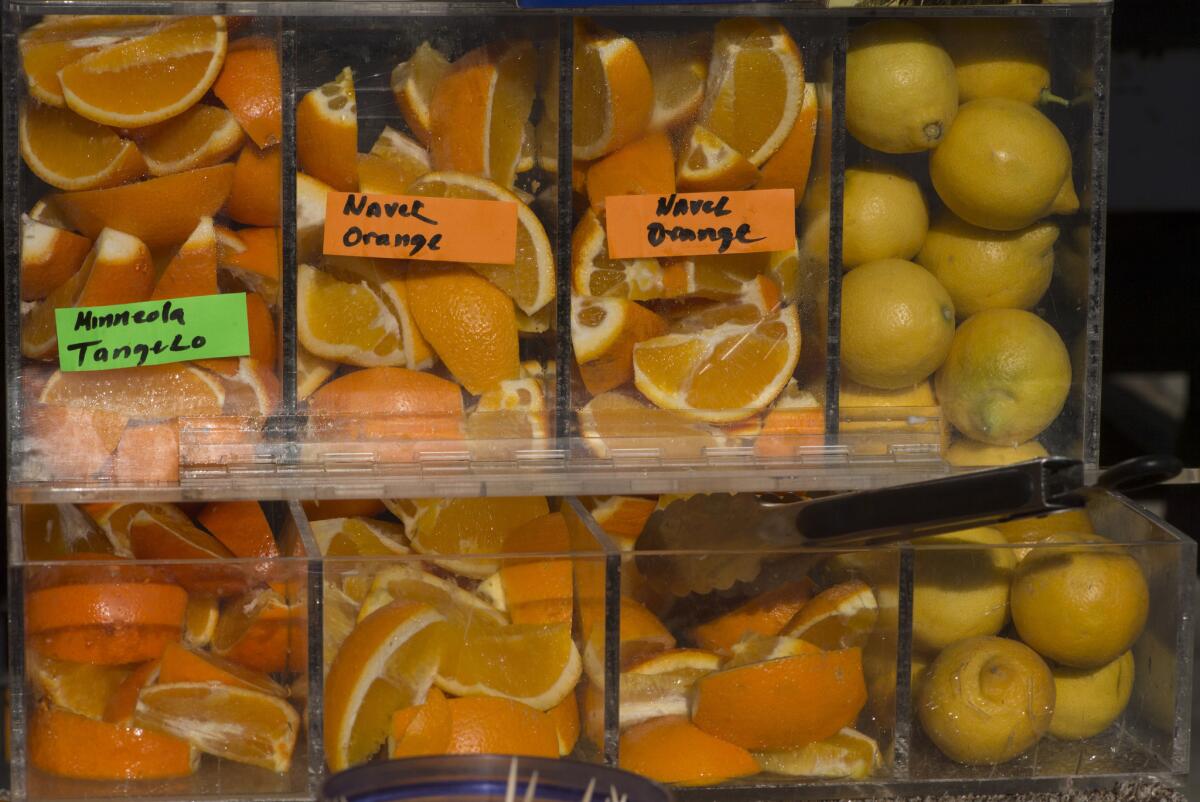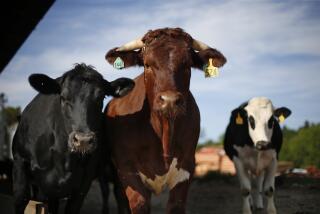FDA must stand firm in the ‘natural’ food fight

Contrary to what many consumers assume, a “natural” label on foods doesn’t necessarily mean much. The Food and Drug Administration has never defined the term, though it says it doesn’t object to its use to describe foods without added color, artificial flavors or synthetic substances.
Now the FDA is being asked to broaden the term “natural” into meaninglessness by allowing genetically engineered food to be labeled natural. A letter sent to the FDA by the Grocery Manufacturers Assn. in December, first reported by the New York Times, signals the trade group’s intent to formally seek the “natural” label for the many products that contain bioengineered ingredients. The agency should firmly and swiftly reject any such petition.
It’s true that most of the foods we eat have their origins in agricultural hybridization. But hybridization also occurs naturally. In contrast, genetic alteration in laboratories to insert certain qualities — resistance to disease or the ability to withstand herbicides — does not occur naturally.
PHOTOS: Seven foods, genetically engineered
Bioengineered food is simply too out of whack with what the public perceives to be natural. Most consumers would consider a tangelo — a cross between a tangerine and a grapefruit — to be natural even though it results from human-induced hybridization. But they would not think the same thing of an orange whose genes were engineered in a laboratory to resist citrus greening, a disease that is ravaging orange crops. Such engineering, still in the research phase, might prove to be a great benefit. In fact, the future availability of oranges might depend on it. It may thus turn out to be important, even vital, but that doesn’t make it natural.
Then there’s a company that has created a vanilla flavoring extracted from engineered yeast through a process called synthetic biology, or synbio, and is hoping that products such as ice cream that are made with its flavoring might be labeled “all natural,” even though the flavoring could not be called natural vanilla flavor. That, too, would overstretch the boundaries of what the public considers natural.
There is a big difference between this and the ongoing controversy over whether food containing genetically engineered ingredients must be labeled as such. In the absence of evidence that bioengineered food could harm people who eat it, it’s hard to see the justification for requiring that information on labels. It’s one thing not to place every bit of information about food on every label; it’s another to actively mislead the public. Allowing the word “natural” to describe food whose genetic origin was the laboratory would make a mockery of food labeling.
More to Read
A cure for the common opinion
Get thought-provoking perspectives with our weekly newsletter.
You may occasionally receive promotional content from the Los Angeles Times.









